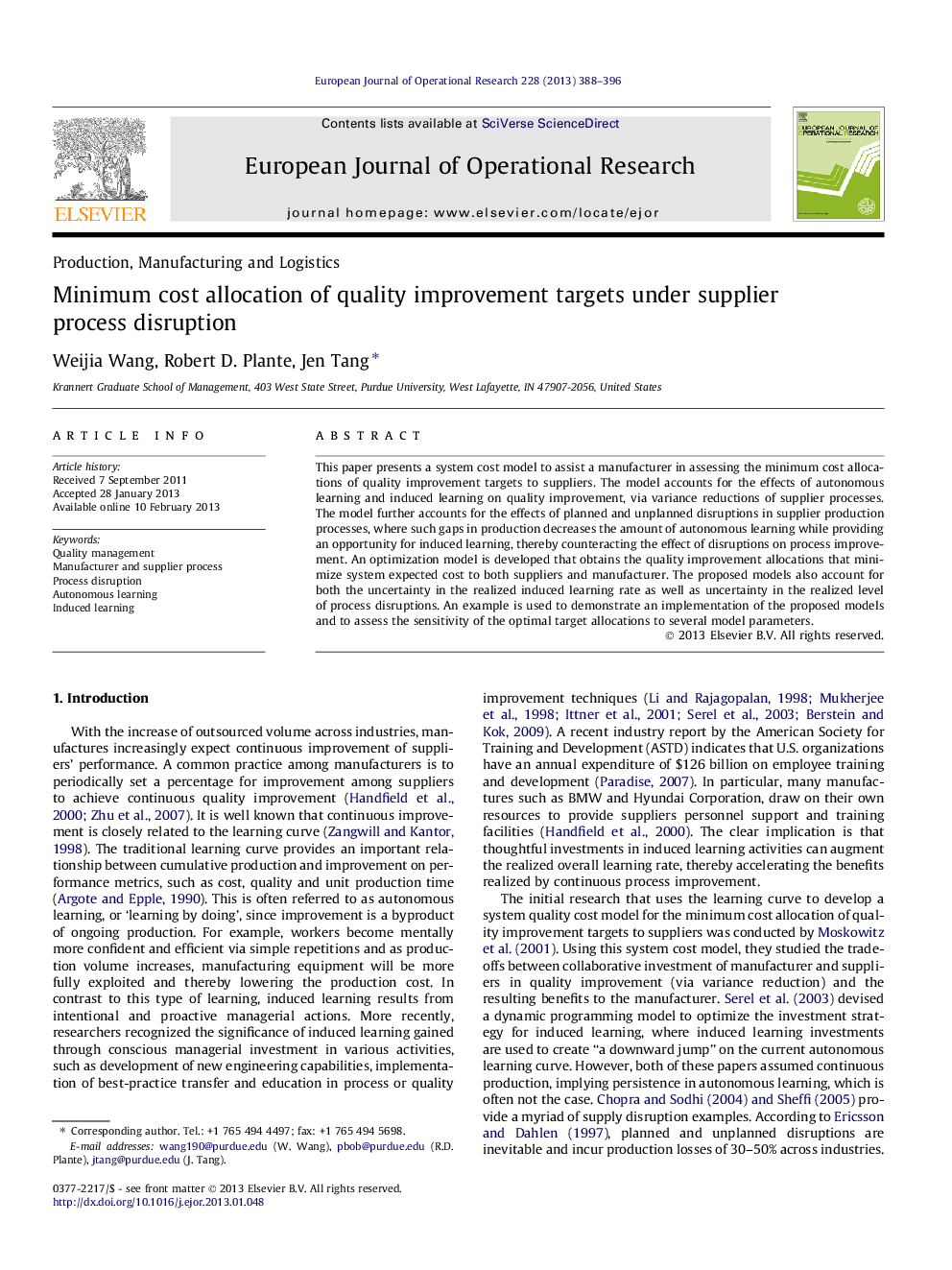| Article ID | Journal | Published Year | Pages | File Type |
|---|---|---|---|---|
| 478311 | European Journal of Operational Research | 2013 | 9 Pages |
This paper presents a system cost model to assist a manufacturer in assessing the minimum cost allocations of quality improvement targets to suppliers. The model accounts for the effects of autonomous learning and induced learning on quality improvement, via variance reductions of supplier processes. The model further accounts for the effects of planned and unplanned disruptions in supplier production processes, where such gaps in production decreases the amount of autonomous learning while providing an opportunity for induced learning, thereby counteracting the effect of disruptions on process improvement. An optimization model is developed that obtains the quality improvement allocations that minimize system expected cost to both suppliers and manufacturer. The proposed models also account for both the uncertainty in the realized induced learning rate as well as uncertainty in the realized level of process disruptions. An example is used to demonstrate an implementation of the proposed models and to assess the sensitivity of the optimal target allocations to several model parameters.
► Obtain minimum cost allocations of quality improvement targets among suppliers via a system cost model. ► Simultaneously model autonomous and induced learning. ► Account for the effects of both planned and unplanned disruptions in supplier processes. ► Study the counteractive impact of induced learning on process disruptions. ► Conduct a sensitivity analysis of several model parameters via a numerical example.
